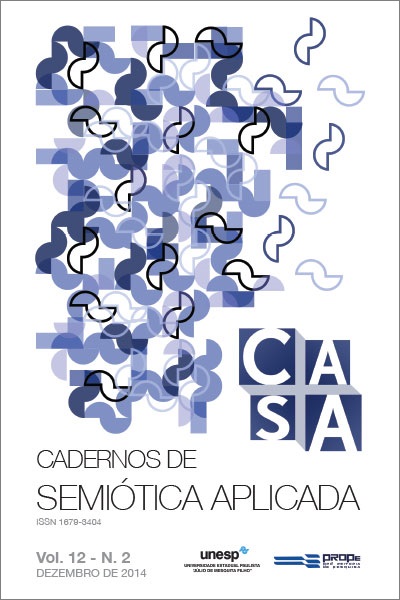A FORMAÇÃO DO PROFISSIONAL DA SAÚDE NA PERSPECTIVA DA SEMIÓTICA
DOI:
https://doi.org/10.21709/casa.v12i2.7200Palavras-chave:
Comunicação, Formação do profissional de saúde, Semiose, Plano de cuidados, Semiótica.Resumo
Este ensaio apresenta uma proposta de referencial teórico para a formação do profissional da área da saúde baseado na filosofia pragmática de Charles Sanders Peirce, mais especificamente na classificação dos tipos de raciocínios, na concepção de diagrama e na descrição do processo mental como uma relação triádica entre signo, objeto e interpretante (semiose). Estudos revelam que a comunicação entre o profissional da saúde e a pessoa assistida tem sido estabelecida de maneira descontextualizada; decorrente, muitas vezes, da ênfase que esse profissional atribui a realização do procedimento técnico-científico e aos protocolos pré-determinados. Propomos: 1. uma análise do processo de comunicação entre o profissional da saúde e a pessoa que requer cuidados, entendido como um processo que se pauta na ação do signo, ou semiose; 2. a elaboração de um plano de cuidado/tratamento como um processo projetivo diagramático que contempla múltiplas variáveis e que requer o auxílio dos raciocínios abdutivo, dedutivo e indutivo para realizar eficientemente seu propósito.Downloads
Publicado
26/02/2015
Edição
Seção
Artigos
Licença
Os autores dos trabalhos aprovados concordam em ceder aos CASA os direitos não exclusivos de publicação, permanecendo livres para disponibilizar seus textos em outros meios desde que mencionada a publicação da primeira versão na revista. Autorizam, ainda, a revista a ceder seu conteúdo para reprodução em indexadores, repositórios e similares. É vedada a tradução para outro idioma sem a autorização escrita do Editor, ouvida a Comissão Editorial. A responsabilidade do conteúdo dos artigos é exclusiva dos autores.

